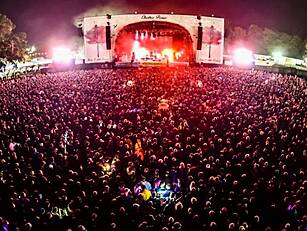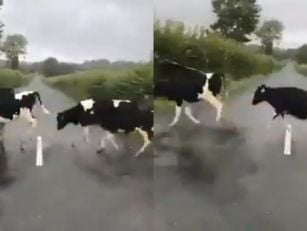NON-FICTION: Nadine O'Regan and Kevin Power give us their top picks:
FICTION: Authors Anna Carey and Declan Burke give us their top ten summer reads:
ANNA’S PICKS
Americanah by Chimamanda Ngozi Adichie
Ifemelu is a Nigerian writer, blogger and academic who has decided to move back to her own country after fifteen years in America. And so she contacts her first love Obinze, who has stayed in Nigeria and become a successful property developer with a not exactly perfect marriage. This hugely enjoyable new novel moves across several decades and three continents to tell Ifemelu and Obinze’s stories. Chimamanda Ngozi Adichie effortlessly tackles issues of race, class and belonging with compassion and wit, and you’ll be gripped from the first page of this brilliantly insightful, evocative book.
Beautiful Ruins by Jess Walter
When a beautiful American actress turns up at the hotel run by a young man called Pasquale in a remote Italian fishing village in 1962 and tells him that she'd dying, Pasquale doesn't realise his life is about to change forever. Dee Moray has been working on the blockbuster film Cleopatra in Rome, and has become a little too close to the star Richard Burton (who makes a memorable appearance in the book). This brilliant novel moves forward and backward in time, from Pasquale and Dee in the 1960s to an ambitious young film producer and a would-be writer in the present day, telling a compelling story about fame and love.
Eleanor and Park by Rainbow Rowell
Set in 1986, Eleanor and Park is the story of two teenagers who meet on the school bus in a working class district of Omaha, Nebraska, and fall slowly in love. It starts with Eleanor reading Park's comics over his shoulder; it ends with desperate family drama. It sounds simple, but all the characters are so perfectly drawn, as is Eleanor and Park's relationship. It's one of the best books about young love I've ever read. Everyone I know who's read this funny, sad book cried buckets at the end, and I was no exception.
Instructions for a Heat Wave by Maggie O’Farrell
The story of an Irish family in 1970s London begins when Robert Riordan goes off to buy a newspaper and doesn’t come back. The disappearance of this quiet, ordinary man brings together his fractured family; after Robert’s bewildered wife Gretta tells their grown-up children all about his disappearance, the three younger Riordans return to the family home, where they find themselves wondering if any of them ever really knew their father at all. Elegantly written and populated by unforgettable characters, especially the youngest Riordan, Aoife, it’s a fantastic book.
The Ocean at the End of the Lane by Neil Gaiman
Both a pitch-perfect fantasy and a moving examination of childhood memories and their effects on our adult selves, Neil Gaiman’s superb The Ocean at the End of the Lane is first novel for adults since 2005. It begins with the unnamed narrator returning to his childhood home after his father’s funeral, where memories start to return of an extraordinary experience that took place when he was seven, after the family’s lodger killed himself in their car. What follows features familial tension, ancient magic, a very old little girl and an ocean that can be carried in a bucket.
DECLAN’S PICKS
The Deal by Michael Clifford
Irish journalist and author Michael Clifford debuted last year with Ghost Town, which used for its backdrop the ghost estates dotting the post-boom Irish landscape. The Deal (Hachette Books Ireland, €18.75) similarly explores the impact of recession, as Karen Riney, formerly a successful saleswoman, gets involved in the murky world of grow-houses, cultivating marijuana under the aegis of Dublin criminal Paschal Nix. Growing dope is a relatively harmless and possibly even victimless crime, or so Karen believes, but being an innocent abroad she reckons without the greed and paranoia that attend large sums of illicit cash.
Clifford crafts a tense tale as he braids together his headline-friendly plot-lines, but where he excels is in his characterisation. Karen and Nix are joined by Kevin, previously a prosperous builder-developer who now owes a debt to Nix, and by Dara Burns, a Blues-loving gangland enforcer with a vacuum for a soul. Clifford creates characters who aren’t simplistically defined as criminal or civilian, legal or illegal; for the most part, they are ordinary people who find themselves in very difficult financial circumstances, doing whatever it takes to keep their heads above water. The result is a compellingly fatalistic tale of desperation, double-cross and inevitable murder.
The Cuckoo’s Calling by Robert Galbraith
Regardless of its author’s name, motives or reputation, JK Rowling’s work is easily one of the most assured and fascinating debut crime novels of the year
Robert Galbraith, of course, was last month revealed to be the pseudonym of JK Rowling, who published The Cuckoo’s Calling in April. Rowling adopted the nom de plume, according to her press statement, in order to publish without hype or expectation, and to get feedback under a different name. The book was well received by Galbraith’s peers and in trade reviews, but the sales – fewer than 1,500 copies – were vanishingly small by comparison with the sales of her Harry Potter novels, or even last year’s foray into literary fiction, The Casual Vacancy.
Once the author’s true identity was revealed, The Cuckoo’s Calling rocketed towards the top of the bestselling charts.
Three months after a young supermodel, Lula Landry, plunges to her death from a balcony in what was subsequently ruled a suicide, private eye Cormoran Strike is commissioned by Lula’s brother, John Bristow, to investigate what he believes to be Lula’s murder. Strike takes the case only to relieve the strain on his beleaguered finances, but as he digs deeper into the events surrounding Lula’s death, his conscience becomes the guiding light of the investigation.
Light of the World by James Lee Burke
James Lee Burke’s Dave Robicheaux novels are usually set in Louisiana, but Light of the World (Simon & Schuster, €20.50) takes place in Montana, where the extended Robicheaux clan are on vacation.
The story opens with Alafair, Robicheaux’s daughter, being grazed by an arrow while jogging along a mountain trail, an event which puts the Robicheaux family – and Dave’s long-time friend and partner, Clete Purcel – on a collision course with some of Montana’s less reputable characters, among them the immensely wealthy Love Younger and the serial killer Asa Surrette.
The Montana setting is entirely appropriate for Light of the World, which is the 20th Dave Robicheaux novel (and Burke’s 32nd novel in all), the monumental beauty of its soaring peaks and Big Sky providing a vast backdrop for Burke’s epic tale of doggedly indefatigable Good confronting an irrepressible Evil.
Told in Burke’s customary elegant, elegiac style, and borrowing heavily from Old Testament imagery, Light of the World is another sumptuous tale from a crime fiction master as he continues to rage against the dying of the light.
Home Fires by Elizabeth Day
‘Home Fires’, opens in 1920, with young Elsa unable to understand why her mother has brought her to a Westminster Abbey commemoration of the men who died during WW1. Her father, Horace, who fought in France, has not attended the event.
When Elsa and her mother return home, Elsa is sent to her father’s study to ask if he would like some tea. From his violent reaction to her, we quickly understand that Elsa’s father is suffering from post-traumatic stress disorder.
Day then introduces a contemporary character, Caroline, who appears to be suffering from depression and taking large quantities of anti-depressants to cope with a tragedy. Her thinking is fuzzy, unclear. Despite the best efforts of her husband, Andrew, Caroline lacks the will or inclination to get out of bed. The story evolves to become the interlinked tale of two women who have been brutalised by war.
The novel is a powerful and at times heartbreaking account of Caroline and Elsa’s inability to deal with their respective crises.
‘Home Fires’ is a powerful and haunting tale, a thought-provoking testimony to the fortitude of those women and children who must somehow learn to cope as best they can with the devastating repercussions of war.














